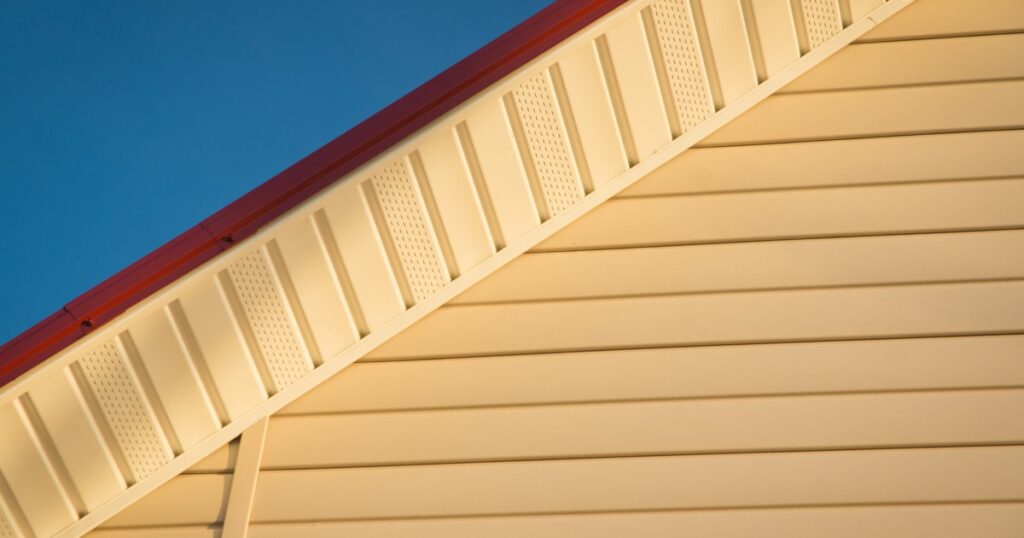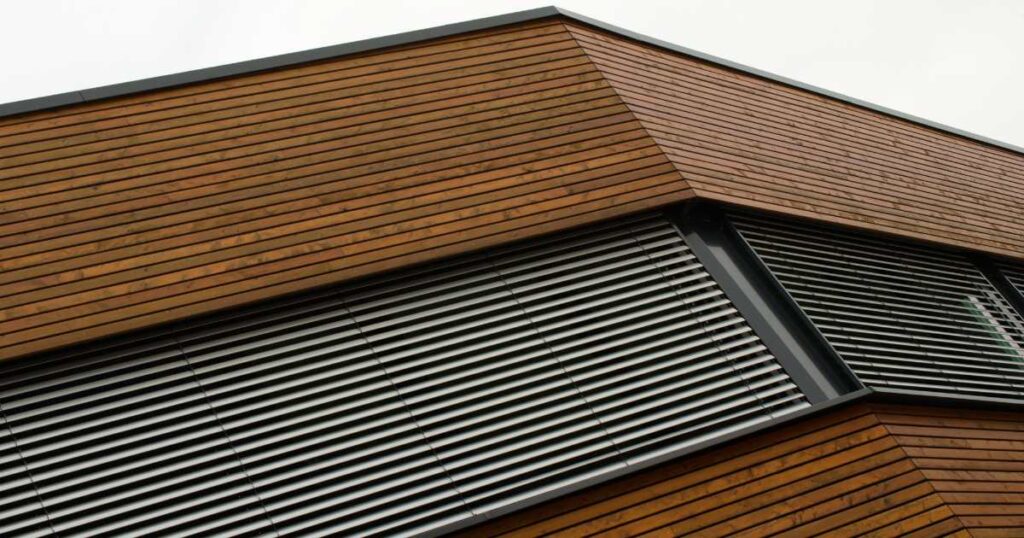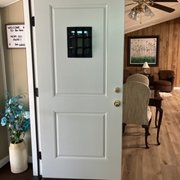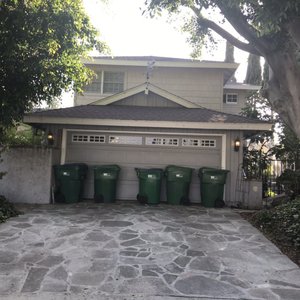Noise pollution can be a significant issue in modern life. Excessive sound levels can impact the quality of life and even health, whether due to loud neighbors, traffic, or aircraft noise. One way to address this issue is by using soundproof siding. Installing the correct type of siding material can help reduce noise transmission into your home from the outside. Siding materials protect homes from natural elements such as rain, wind, and snow. They also add aesthetic value to homes by improving their curb appeal.
When considering different siding materials for your home’s exterior design, it’s also essential to consider soundproofing. Other types of siding materials are available today; each material has advantages and disadvantages regarding noise reduction capability.
Different Types of Siding Materials Available
Vinyl siding is popular among homeowners. It is due to its affordability and low maintenance requirements. It’s made from polyvinyl chloride (PVC) resin and other additives that provide durability, impact resistance, and aesthetic appeal. Wood siding offers a natural beauty that adds rustic charm to any home.
It’s versatile and comes in different styles, such as shiplap or clapboard. However, wood siding requires regular maintenance to avoid rotting or insect damage.
Fiber cement siding is a composite material. It is made from cement mixed with cellulose fibers. This type of siding is known for its durability and resilience against harsh weather conditions such as heat or cold temperatures. It requires minimal maintenance compared to wood sidings.
Vinyl Siding

How Vinyl Siding Can Help with Soundproofing
Vinyl siding is popular for homeowners looking to improve their home’s energy efficiency and reduce noise transmission. The material provides excellent insulation, which can help reduce noise from outside sources.
The vinyl siding absorbs sound waves and does not travel through the walls, making it an effective soundproofing material. The thickness of vinyl siding is another factor that contributes to its effectiveness in soundproofing.
The thicker the vinyl siding, the more effective it is at blocking sounds from entering the home. Additionally, variations of vinyl siding come with foam backing that enhances sound insulation properties even further.
Details on Thickness and Density of Vinyl Siding
Vinyl siding is available in various thicknesses from 0.04 inches up to 0.05 inches thick or more, with some brands offering even thicker panels at 0.06 inches wide or greater. The thicker options provide better insulation properties against sound transmission. Regarding density, quality vinyl siding typically has between 12 and 16 panels per inch (PPI).
A higher PPI means a denser panel which translates into less exterior noise penetrating the wall assembly. It’s important to note that while increasing thickness improves soundproofing abilities, it also comes at an increased cost.
Advantages of Using Vinyl Siding for Soundproofing
A disadvantage of using vinyl siding for soundproofing is that it is not the most effective material available today. While it does provide some soundproofing benefits, other materials like wood or fiber cement may perform better.
Wood Siding

Understanding How Wood Siding Can Help With Soundproofing
Wood siding is a popular and aesthetically pleasing choice for homes. But did you know that wood siding can also help with soundproofing?
The natural composition of wood makes it an excellent material for absorbing sound waves, thereby reducing noise transmission between rooms or from the outside. When sound waves hit wood siding, they cause the fibers to vibrate, dissipating the energy into heat and reducing the wave’s amplitude.
Different types of wood siding have varying effectiveness in reducing noise transmission. Solid wood siding is dense and thick, making it a highly effective option for soundproofing.
Engineered wood siding consists of layers of different bonded materials, which can help with insulation and noise reduction. However, thinner or less dense woods such as cedar or pine may be less effective in reducing noise transmission.
Comparing Different Types of Wood Siding for Soundproofing
Several types of wood siding available on the market can be used for soundproofing. One popular option is cedar shingles or shakes. Cedar has natural oils that make it rot-resistant and durable, but its thickness can vary greatly, which affects its effectiveness as a sound barrier.
Another option is redwood siding, which has properties similar to cedar but may be more expensive due to its higher durability and resistance to decay. Pine is another common type of wood used for siding but tends to be less effective than cedar or redwood due to its lower density.
For those looking for an eco-friendly alternative, bamboo siding is a sustainable option offering good insulation against noise transmission. It’s important to note that bamboo is technically a grass rather than a hardwood like traditional woods used in sidings; it still provides a durable surface and is a better sound insulator than many other materials.
The Pros and Cons of Wood Siding for Soundproofing
One advantage of wood siding for soundproofing is its natural ability to absorb sound waves. This can provide an effective barrier against noise transmission inside and outside the home.
Additionally, wood siding offers an attractive, natural-looking finish that can add value to a home. However, there are some drawbacks to using wood siding for soundproofing.
Depending on the type of wood used, it may not be as effective as other materials, such as vinyl or fiber cement, in reducing noise transmission. Wood siding may require more maintenance than other options, including regular sealing or staining to prevent moisture damage or decay.
Another factor to consider is cost. High-quality wood siding can be expensive compared to other options, such as vinyl or aluminum. Some people may have concerns about the sustainability of using hardwoods like cedar and redwood for home construction.
Is Wood Siding Right For Your Soundproofing Needs?
Overall, wood siding can be an excellent choice for those looking to reduce noise transmission in their homes while providing an attractive finish. With its natural ability to absorb sound waves and the various types available, a variation will likely work well for your needs. However, it’s essential to consider factors such as cost and maintenance requirements before deciding which material is best suited for your project needs.
Fiber Cement Siding

How Fiber Cement Siding Can Help with Soundproofing
Fiber cement siding is another choice who want durable, low-maintenance siding that can also help with soundproofing. The composition of fiber cement, which typically includes cement, sand, and cellulose fibers, makes it denser than many other siding materials. This density helps to absorb sound waves and reduce noise transmission through walls.
In addition to its natural density, fiber cement siding can be installed with an additional layer of insulation to improve its soundproofing capabilities further. This insulation layer can be made from foam or fiberglass and installed behind the fiber cement siding to create an effective barrier against noise.
The Composition and Thickness of Fiber Cement
The thickness of fiber cement siding is a critical factor in its effectiveness in reducing noise transmission. Generally speaking, thicker siding will provide better soundproofing performance than thinner options. For example, some fiber cement products are available in 5/16-inch thicknesses while others are as thick as 7/16 inches.
Regarding composition, some manufacturers use different materials in their fiber cement products to improve their sound-deadening properties. For example, Some siding incorporates silica into the mix to increase density and improve impact resistance, as well as the ability to reduce noise transmission.
Advantages of Using Fiber Cement Siding for Soundproofing
One significant advantage of using fiber cement siding for soundproofing is its excellent durability and resistance against elements like moisture and pests. Fiber cement is non-combustible and resistant to fire damage, making it particularly attractive in wildfire-prone areas.
Another benefit of using this type of siding for soundproofing is that it requires relatively little maintenance compared to other siding options like wood. Fiber cement siding can be painted. It matches various exterior designs and color schemes but doesn’t need to be repainted frequently.
Disadvantages of Using Fiber Cement Siding for Soundproofing
One potential drawback of using fiber cement siding for soundproofing is its cost. It’s typically more expensive than vinyl or wood options, although it does offer more long-term value. Another potential issue with fiber cement siding is that it is heavy. It is also challenging to install correctly. This can increase the installation time and costs of this type of siding.
Vinyl, Wood, and Fiber Cement Siding Comparison

When it comes to choosing the best siding for soundproofing your home, there are a few options that stand out above the rest. In this section, we will compare vinyl, wood, and fiber cement siding in terms of cost, durability, maintenance requirements, installation process, and other vital features to decide which suits your situation.
Cost
The cost of siding varies greatly depending on the material used. Vinyl siding tends to be more affordable, with prices ranging between $2-$7 per square foot installed.
Wood siding can range from $5-$12 per square foot, depending on the type of wood used. Fiber cement siding is typically priced between $5-$10 per square foot installed.
While vinyl may seem the cheaper option initially, it’s also essential to consider long-term costs. For example, wood may require more maintenance over time, while fiber cement is known for its durability and may require less upkeep overall.
Durability
Durability is essential in any type of home renovation or improvement project. When comparing vinyl versus wood versus fiber cement siding, each material has its strengths and weaknesses in terms of durability. Vinyl siding is known for being durable against weather elements such as rain and wind.
Wood can also withstand harsh weather conditions but may be prone to rotting or warping if not maintained adequately through painting or staining every few years. Fiber cement has become popular due to its high durability against weather elements, including fire resistance, while maintaining a natural look similar to wood without the risk of rotting or warping.
Maintenance Requirements
The maintenance required for each type of siding is essential when choosing the best option for your home. Vinyl is well-liked due to its minimal maintenance requirements. Vinyl doesn’t require painting or staining over time but can be easily cleaned using soap and water.
Wood siding requires painting to maintain its natural look and protect it from rot damage. Wood can quickly deteriorate without proper maintenance and become less effective as a sound barrier.
Fiber cement siding requires less maintenance than wood but may require occasional painting or cleaning to maintain its appearance. It’s important to note that fiber cement may be more challenging to repair if damaged than vinyl or wood.
Installation Process
The installation process for different types of siding varies based on the material used and whether it’s installed vertically or horizontally. Vinyl siding is easy to install. This can be done quickly by professionals with prior experience. Wood requires skilled labor, which could increase installation costs. In contrast, fiber cement installation is similar in skill level to wood but typically takes longer due to the weight of the material.
Which type suits different situations the best?
After considering all aspects mentioned above, choosing the right type of siding for soundproofing your home depends on personal preference, budget constraints, architectural style, environmental considerations, geographic region (climate), etc. If affordability is a priority, then vinyl could be an ideal choice. At the same time, fiber cement would appeal more if you want premium quality with added durability without too much effort in maintaining it.
Wooden sidings are preferable if you own a historic property or eco-friendly buildings like log cabins. Homeowners in areas prone to hurricanes/ storms should opt for materials like cement sidings as they offer better resistance to high winds and debris.
If you seek a soundproofing solution that is easy to install or requires minimal maintenance over the years, vinyl siding could be the perfect fit. There is no perfect option for choosing the best siding for soundproofing your home.
Each material has its strengths and weaknesses. Ultimately, it’s up to homeowners to decide which siding material suits their specific needs and preferences. It should be based on cost, durability, maintenance requirements, installation process, and environmental considerations.
Final Thoughts on Choosing the Best Siding
You must consider several factors when selecting the best siding material to soundproof your home. The location of your house will determine the amount of external noise it experiences. It will influence your choice in selecting appropriate materials. cost is another factor since some materials may be more expensive. Although this is the case, it still provides similar or better results regarding reduced noise transmission.
Choose durable materials with low maintenance requirements, ensuring longevity while saving on future repair costs. Deciding which material to use should be about functionality and aesthetics, as external appearance affects curb appeal and valuation.
There is no best option when considering suitable siding materials for soundproofing a home. Various factors must come into play before deciding. It’s always best to learn and make an informed decision.



























